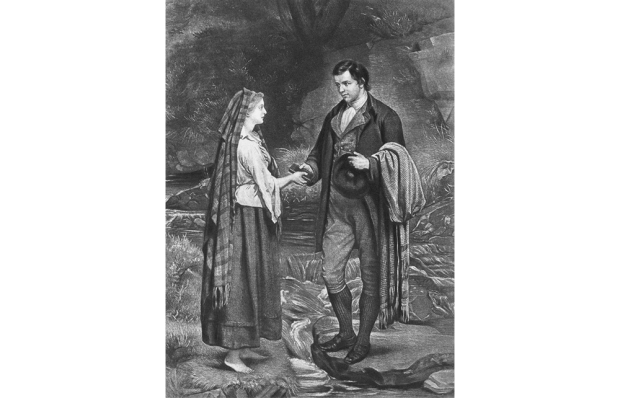In Competition No. 3116 you were invited to submit an extract from a government memo whose language would meet with the approval of Jacob Rees-Mogg.
The Leader of the House recently sent his departmental staff a list of rules regarding grammar and vocabulary. The words ‘ongoing’ and ‘hopefully’ are out; imperial measurements are in. All non-titled males are henceforth to be referred to as ‘esquire’.
Although Mr Rees-Mogg takes a dim view of words such as ‘very’, ‘got’ and ‘lot’, mischief-makers at the Guardian have pointed out that, according to Hansard, the honourable member himself has used one or other of the proscribed words or phrases on more than 700 occasions.
Adrian Fry, clearly no fan of the Moggster, imagined a memo to written to him by C.S. Lewis’s fictional demon Screwtape. John O’Byrne wasn’t the only one to reference the recent kerfuffle about J.R.M’s relaxed posture during a late-night debate on Brexit: ‘The purpose, ab initio, of this Memorandum of Understanding (‘MoU’) is to set out, mutatis mutandis, the arrangements for the improvement of posture and sitting position in the Chamber…’
The best, in a smallish entry, are printed below and earn their authors £30 each:
We must follow our leader to the last furlong for he is every inch a king, miles better than the rotten carcase that is Corbyn. Though our opponents heap tons of rubbish in the path of our executing what the people want, it makes not an ounce of sense to surrender to them. Our yardstick must be: ‘What would Winston do?’ even if the great man’s grandson has feet of clay. In the end we shall have a hundredweight of happiness when we are released from the chains of Europe. Deal or no deal, we shall be in possession of our own island acres, wise in our pennies and prudent in our pounds. Our foes will learn the futility of throwing small stones and our gracious sovereign will continue to reign over a successful Britain with imperial, not metric, majesty.
Frank McDonald
When communicating to the press and public about government communication norms, we must anticipate that correctness and reverence for tradition will inevitably provoke ridicule from some quarters in the prevailing contemporary culture of laxity. Wits manqué may snicker that they hardly know what adjective to apply to the word ‘unacceptable’ these days. Persons of this stripe are to be discounted. For those who genuinely wish to understand our goals of clarity and forthrightness, however, we must stand ready to explain and illustrate the absolute propriety of our concern for the language in which the government of the United Kingdom conducts its business. We must leave no doubt that while we endorse ‘hopefully’ as an adverb, since we pursue so many of our political goals with a hopeful outlook, we do not countenance misuse of the word to mean ‘one hopes’, a particularly grating solecism that is, thankfully, declining in popularity.
Chris O’Carroll
Henceforth the following will be the protocols governing the nomination, punctuation and orthography of minor office accessories. It cannot be gainsaid should that attention to detail is a vital foundation.For attaching letters or documents that ‘go’ together, the preferred method, fully proven by tradition, is to employ a linking apparatus commonly known as a ‘Treasury tag’ or ‘India tag’. The latter appellation is not to be used.
Notwithstanding, a device of short provenance, the paper-clip, may be used instead. It is invariably hyphenated to show that it is a clip for paper, not of paper. This principle applies equally to the paper-punch (used with the Treasury tag), also a comparatively recent invention.
It cannot be overstressed that, as Aristotle avers, ‘We are what we repeatedly do. Excellence then is not an act, but a habit.’
Basil Ransome-Davies
… 14. Any gentleman more than six feet or furlongs in length when fully or partially recumbent is to have his desires accommodated if he wishes to adopt a semi-languorous pose, whether in a private or public space.
15. Any member of the Lord President’s office concerned about the over-use of the verb ‘deliver’, and its associated noun, ‘delivery’, is referred to Hansard. These words have been accepted by Mr Rees-Mogg, M.P., Esq. and are tacitly therefore to be accepted in every circumstance.
16. Members of the Lord President’s team must be alert to egregious attempts to portray W.T.O. rules as threatening to the country. The response is to be simple. Mr. Rees-Mogg has on many occasions supported a move to W.T.O. rules. They therefore are not threatening to the country.
17. Those who opine that matters are ‘unconstitutional’ should be advised that it is they who are unconstitutional …
Bill Greenwell
In re your performance qua parliamentary speakers, be not prolix in your proem; rather, predicate the prose. When apposite, prefer pithy punctiliousness to pointless pedanticism.Remember the Classics: diligently deploy ablative absolutes, the supine mode; oratio obliqua. Judicious application of gerundive and subjunctive cannot but enhance your charisma. Bear in mind the great rhetoricians: Cicero, Socrates, Zeno, Gladstone, Mussolini. The Debating Chamber, your agora, gladiatorial arena. Experience is gained from standing on the shoulders of your forebears; thereby shall you see the farther.
Referring back to ‘supine’ in its other sense: a slumped, slouching posture upon benches anterior and posterior is an unpardonable breach of protocol, never to be condoned. Ab uno disce omnes: from one, may ye all learn. And let me not hear used my anagrammatical sobriquet, ‘Ms George’.
Mike Morrison
No. 3119: watch the birdie
Birds have been a popular subject for poets.You are invited to submit a poem about a yellowhammer. Please email entries of up to 16 lines to lucy@spectator.co.uk by midday on 2 October.
Got something to add? Join the discussion and comment below.
Get 10 issues for just $10
Subscribe to The Spectator Australia today for the next 10 magazine issues, plus full online access, for just $10.
You might disagree with half of it, but you’ll enjoy reading all of it. Try your first month for free, then just $2 a week for the remainder of your first year.













Comments
Don't miss out
Join the conversation with other Spectator Australia readers. Subscribe to leave a comment.
SUBSCRIBEAlready a subscriber? Log in